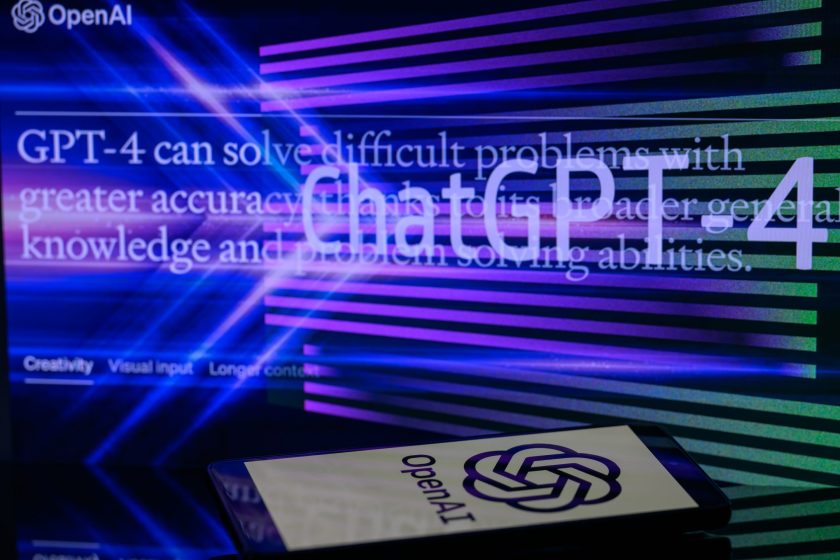
A prominent VC predicts Web3 will have its “ChatGPT moment” and enter the mainstream this year. Jonathan Raa/NurPhoto—Getty Images
Happy Friday. Instead of adding yet another take to the “IS THIS THE DAY THE SEC APPROVES A BITCOIN ETF??” pandemonium (Spoiler: The answer is maybe, but probably not), I want to take a closer look at a New Year’s Day essay where longtime venture capitalist Fred Wilson shared his predictions for the coming years. His primary focus was on the fast-evolving AI landscape, but he also had this to say about Web3:
But as important as regulatory clarity is to web3, it pales in importance with the need for a “ChatGPT moment” for blockchain-based technologies. AI developed for over forty years before its coming out party. I think it will take web3 less than half that time. Satoshi gave us the playbook to build a decentralized internet stack back in 2008 and I feel quite confident that we will have massive mainstream applications running on this decentralized stack well before 2028. I think we will see mainstream decentralized applications emerge in 2024 as we now have inexpensive and fast transactions and simpler user interfaces.
I found this paragraph notable for a couple of reasons. The first is Wilson’s casual reference to Web3, a term that felt on the cusp of the mainstream in 2021 but has since become more like an uncool slang word that people pretend they never used. Wilson is not the only one I’ve heard use the term in recent weeks, suggesting “Web3” may be making a comeback. For what it’s worth, I think the term isn’t a bad one as it describes an aspiration for a new era of the internet where we can control our own data rather than giving it to Google and Facebook to fuel their invasive ad schemes.
The other thing that struck me about Wilson’s comment was his suggestion that Web3 is poised to have a “ChatGPT moment”—a moment where an overhyped technology suddenly bursts into the mainstream and shows it really is a big deal. I agree with Wilson that crypto and Web3 will have such a moment for the simple reason that blockchain tech is legit and that there are too many brilliant people working on it for it to be a bust. Where I disagree is the timeline.
Wilson said mainstream decentralized apps will emerge this year, but I see two major barriers. One is complexity. AI burst into the mainstream because first-time ChatGPT users did not have to jump through any major hoops to see the power of the technology. Sure, it takes a few tries to write a good prompt, but overall it’s not much different from using Google. Want to try out a decentralized application? Better know your way around a self-custody wallet and, unless you want to torch all your money on gas fees, better learn how to navigate layer-2 networks. Oh, and if you screw any of this up, you will lose your money forever or someone will steal it.
The upshot is that, for people with ordinary technical chops, using Web3 is way harder than using ChatGPT, so they won’t bother. Wilson is right that people are building simpler user interfaces but, unless the likes of Apple or Amazon step in, we’re at least three or four years away from a mainstream Web3 experience. Meanwhile, the other barrier to crypto achieving a “ChatGPT moment” this year is the cost to use Web3. We are still early in the latest boom cycle and we’re already seeing the familiar problem of blockchain transactions costing $10 or more—a problem technical people promised would be fixed by now. Sure, you can use an layer-2 solution, but no one can agree on which one and, in any case, that makes the process even more complex.
Don’t get me wrong. I agree with Wilson that crypto is rapidly moving toward mainstream adoption. But it’s going to take more than a year for that ChatGPT moment to happen. In the meantime, we can go back to obsessing about Bitcoin ETFs.
Jeff John Roberts
jeff.roberts@fortune.com
@jeffjohnroberts
DECENTRALIZED NEWS
Visa announced a new loyalty program that will offer perks via a Web3 digital wallet that the company says will require no knowledge of crypto. (The Block)
Former Citi execs launched a firm that offers Bitcoin in the form of depository receipts, which have long been used by U.S. companies to own foreign stock. (Bloomberg)
Coinbase is poised to be the dominant custodian for Bitcoin ETFs, raising the question if this squares with the SEC’s contention it’s not registered to do so. (Bloomberg)
Scammers are hacking official gold-check X accounts of politicians and companies, including Google’s Mandiant, to promote crypto hustles. (Bleeping Computer)
The European Central Bank announced it will spend €1.2 billion with five partners, including Amazon, to accelerate development of a digital euro. (DL News)
MEME O’ THE MOMENT
This news is republished from another source. You can check the original article here








